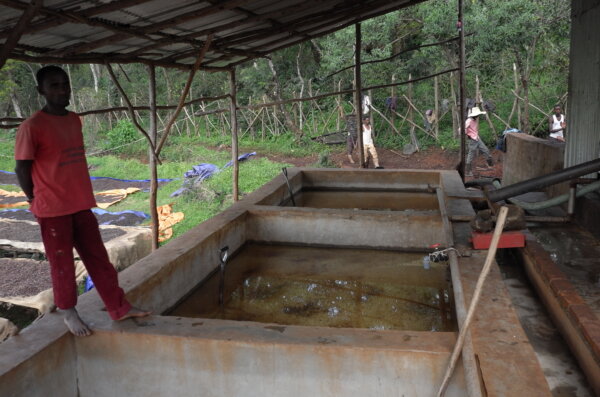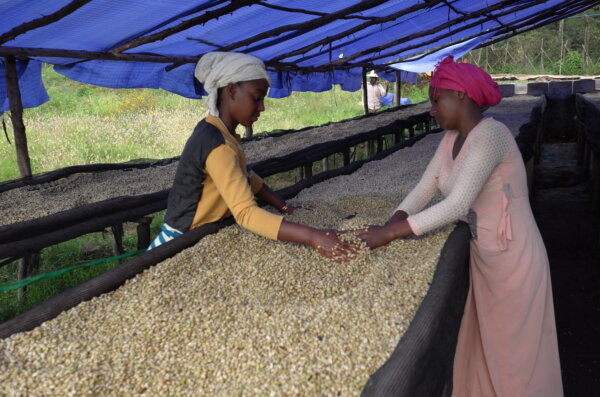About Kolla Bolcha #6
Kolla Bolcha is sourced from 759 smallholder farmers in Ethiopia’s Agaro region in Oromia in the Jimma zone. Our oldest relationship in Ethiopia and one of our oldest in the world, Agaro is in Western Ethiopia.
They’re the earliest Ethiopian coffees we bring in each year, with harvest in January and first shipments arriving as early as February depending on the year. They’re not early-harvest, they’re from Western Ethiopia, which has an earlier growing season. In the weeks following arrival, all coffees bloom over a period of weeks or months, but Agaros are special, continuing to open up for 6+ months after arrival and peaking in flavor for a magically long period post-arrival. We find it even more special that these coffees, which come in first, also hold up the longest.
Agaro coffees have always formed a core of the Red Fox menu, but our relationship there extends back far before Red Fox was born. Back in 2009 when Red Fox co-founder and CEO Aleco first traveled to meet with Agaro cooperatives, their coffees were flowing into the marketplace undifferentiated and undervalued. Once USAID’s Technoserve project, which focused on improving African coffee farmers’ lives by helping them get better prices for their coffee, established these washing stations with brand-new processing equipment, Aleco saw the unique character of these coffees and invested in developing relationships with their producers, which have grown stronger to this day.
Processing is beyond meticulous in Agaro. After Penagos processing equipment mechanically removes most of the fruit and mucilage from the seeds, they soak overnight in fiberglass tanks, allowing any remaining sugars to be fully removed from their surface so that the coffees are perfectly clean by the time they hit the drying beds for the 8+ days they’ll need to dry.
Like the rest of Ethiopia, Jimma is divided into several woredas (districts) and kebeles (communities) with washing stations throughout—each offering unique terroir. The Geera woreda is one of them, and within it lies the Kimbibit kebele which houses the Kolla Bolcha washing station.
In the Kolla Bolcha washing station, coffees are washed and mechanically depulped, then soaked overnight. After fermentation, coffee is dried for 6 to 8 hours a day over 6 to 8 days on raised beds, with frequent turning for even drying.
The area of Kimbibit is characterized by high rainfall distributed across the whole growing season. The harvest season usually goes from mid-October to late January. The farms are located in soaring altitudes that range from 2000-2100 masl. The community’s main source of income is coffee, which they grow on very small farms ranging from 0.1 to 2 hectares.
Kimbibit’s producers intercrop using false banana trees and maize for shade, selecting based on the age of the coffee plant and its other needs. Their soil is a highly fertile sandy loam with good water retention and drainage. It’s self-sufficient with proper planting practices and doesn’t require fertilizer to produce spectacular quality.
The farmers of Kimbibit belong to the Oromo people and speak Oromo. They maintain certain ancestral customs and have a quiet lifestyle built almost entirely around coffee farming. Many families here struggle with lack of electricity and drinking-water access. Children in the area usually don’t start going to school until age 9 because they have to travel long distances to get to the nearest school. Due to this education gap, the majority of young people in the area end up dedicating themselves to agriculture: growing potatoes, coffee, maize, or false banana trees on their parents’ or neighbors’ farms.





